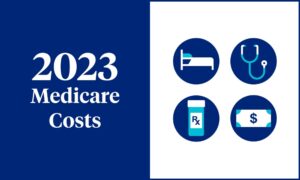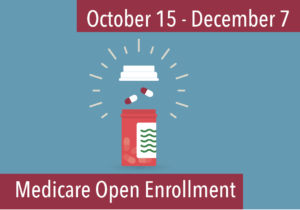What is Medicare Part A (Hospital Insurance)?

Within the intricate landscape of healthcare, it is essential to thoroughly understand Medicare Part A, also known as hospital insurance. Medicare, a federal initiative established in 1965, extends vital healthcare coverage to eligible individuals aged 65 and older, along with certain disabled individuals and those suffering from end-stage renal disease (ESRD). Medicare Part A specifically zeroes in on hospital insurance, ensuring beneficiaries can access necessary inpatient hospital care, skilled nursing facility care, and hospice care (for those with terminal illnesses).
Medicare Part A is primarily funded through payroll taxes contributed by both employees and employers during their active working years. This funding model enables individuals who have accrued sufficient work credits to qualify for premium-free Part A coverage. However, those who do not meet this criterion can still enroll in Part A by paying a monthly premium.
It’s crucial to realize that Part A coverage alone may not shoulder all medical expenses, often necessitating additional coverage through other Medicare components or supplemental insurance plans to bridge coverage gaps.
Gaining a comprehensive understanding of Medicare Part A is paramount for individuals nearing Medicare eligibility and for those helping loved ones with their healthcare decisions. In this guide, we will delve into:
- Eligibility requirements for Medicare Part A hospital insurance
- Detailed coverage for inpatient hospital care, skilled nursing facility care, and hospice care
- An overview of out-of-pocket costs associated with Medicare Part A
- Enrollment periods and critical dates to note
- Additional considerations when exploring Medicare Part A coverage options
By the conclusion of this guide, you will be equipped with the necessary knowledge to confidently navigate the Medicare landscape and make informed decisions about your healthcare coverage.
Eligibility for Medicare Part A:
To qualify for Medicare Part A, which is hospital insurance, individuals must meet certain eligibility requirements. These specifications vary depending on age, disability status, or the presence of end-stage renal disease (ESRD). Let’s delve into each category in greater detail:
Age Requirements:
If you’re aged 65 or older and have been legally residing in the United States for at least five years, you are automatically eligible for Medicare Part A. This eligibility is determined based on your age and residency status.
Additionally, if you or your spouse have worked in a Medicare-taxed job for at least 10 years, you can avail of Medicare Part A without paying any premiums. This is often referred to as “premium-free” Part A coverage.
For those already receiving Social Security retirement benefits, automatic enrollment in Medicare begins the month you turn 65. Your Medicare card should arrive by mail approximately three months prior to your 65th birthday, thus eliminating the need for manual enrollment.
However, if you aren’t already receiving federal government retirement benefits, you will need to apply for Medicare. Keep in mind that your coverage will commence on the first day of the month you turn 65, provided you submit your application before that month. Early application is recommended to ensure uninterrupted coverage.
Eligibility for Individuals with Disabilities:
Beyond age-related eligibility, individuals under 65 may also qualify for Medicare Part A if they meet certain disability-related criteria:
Social Security Disability Insurance (SSDI): You become eligible for Part A benefits after receiving SSDI for over two years. Expect to receive your Medicare card by mail before the 25th month of disability.
End-Stage Renal Disease (ESRD): If you’re experiencing permanent kidney failure (ESRD) requiring regular dialysis or a kidney transplant, you may qualify for Medicare Part A. The start date for coverage varies based on several factors, such as enrollment in a home dialysis training program, among other qualifying circumstances.
Amyotrophic Lateral Sclerosis (ALS): If you have been diagnosed with amyotrophic lateral sclerosis (ALS), often referred to as Lou Gehrig’s disease, you’re eligible for Medicare Part A benefits. Coverage commences in the same month your disability benefits kick in, with no five-month waiting period for ALS patients.
Understanding the eligibility criteria for Medicare Part A is crucial, as it determines your access to hospital insurance coverage, whether based on age or qualifying disability. This knowledge empowers you to make informed healthcare decisions.
What does Medicare Part A Cover?
Medicare Part A offers expansive hospital insurance coverage, encompassing a host of critical services across four key areas.
Inpatient Hospital Care:
Qualifying for this coverage hinges on two conditions: first, your doctor must formally admit you to the hospital as an inpatient, stating that your illness or injury necessitates inpatient hospital care; second, the hospital must accept Medicare.
Let’s delve into the specifics of what Medicare Part A covers for inpatient hospital care:
- Room and Board: Medicare coverage includes semi-private rooms where you’ll stay during your hospitalization. Meals are also provided as part of your inpatient care.
- Nursing Care: General nursing services rendered by healthcare professionals are covered under Medicare. This ensures you receive necessary nursing care during your hospital stay.
- Medications and Supplies: Medicare covers drugs administered during your inpatient treatment. This includes prescribed medications, and other hospital services and supplies required for your inpatient care.
Coverage Limitations:
However, it’s crucial to note that Medicare has certain constraints and exclusions related to inpatient hospital care. Private-duty nursing services, which offer one-on-one nursing care, are not covered. Additionally, the cost of a private room is typically not included unless it’s medically necessary. Charges for television or phone services in your room may also not be covered unless billed separately. Personal care items like razors or slipper socks are typically not covered by Medicare.
To make informed healthcare decisions and prepare for potential expenses, beneficiaries must comprehend the full extent of Medicare’s coverage for inpatient hospital services, including its limitations.
Your Costs Associated With Inpatient Hospital Care
As you navigate your Medicare coverage, it’s vital to be aware of the costs associated with inpatient hospital care. Medicare Part A outlines specific costs for each benefit period, which include deductible and coinsurance amounts. Let’s delve into these costs:
- Deductible: Each benefit period has a deductible that you must fulfill before Medicare coverage commences. In 2023, this deductible for inpatient hospital care stands at $1,600.
- Coinsurance for Days 1-60: During the initial 60 days of each benefit period, the coinsurance amount is $0. This implies that Medicare covers the entire cost of your inpatient hospital care during this timeframe.
- Coinsurance for Days 61-90: For days 61 through 90 of each benefit period, the coinsurance is $400 per day. This means that you are responsible for a daily payment of $400 for your inpatient hospital care during this period.
- Coinsurance for Days 91 and Beyond: If your hospital stay extends beyond 90 days within a benefit period, you enter what is known as “lifetime reserve days.” From day 91 onwards, you’re required to pay a daily coinsurance of $800.
However, bear in mind that you only have a total of 60 lifetime reserve days at your disposal. Once you exhaust these reserve days, you are liable for all costs.”
Skilled Nursing Facility Care
To qualify for Skilled Nursing Facility (SNF) care under Medicare Part A, you need active Part A coverage, a prior hospital stay of at least 3 days, a doctor’s confirmation of skilled care necessity, and services provided in a Medicare-certified SNF.
Let’s examine in detail what Medicare Part A covers for skilled nursing facility care:
- Room and Board: Medicare covers the cost of a semi-private room when receiving care at a skilled nursing facility, ensuring a comfortable and suitable setting for your recovery. Meals are also provided during your stay.
- Skilled Nursing Care: Medicare covers skilled nursing care offered by trained healthcare professionals. This includes services such as wound care, medication administration, and the monitoring of your overall health.
- Rehabilitation Services: If required, Medicare covers necessary rehabilitation services like physical therapy and occupational therapy. These services aim to help you regain strength, mobility, and independence while recovering at the skilled nursing facility.
- Additional Services: Medicare Part A also covers a range of other essential services during your stay at a skilled nursing facility. These include:
- Speech-Language Pathology Services
- Medical Social Services
- Medications
- Medical Supplies and Equipment
- Ambulance Transportation
- Dietary Counseling
It’s vital to remember that while Medicare Part A covers many services during your stay at a skilled nursing facility, there might be additional services recommended by your medical team that fall outside Part A coverage. You would be responsible for the costs associated with these services.
Your Costs Associated with Skilled Nursing Facility Care:
Understanding the costs related to skilled nursing facility care under Medicare Part A is essential for financial planning. Here are the cost details:
- Days 1-20: Medicare covers the entire cost of your skilled nursing facility care during the first 20 days of each benefit period, with a $0 coinsurance amount.
- Days 21-100: From day 21 to day 100 of each benefit period, you will be responsible for a coinsurance amount of up to $200 per day.
- Days 101 and Beyond: After the 100-day limit in a benefit period, all costs become your responsibility.
Note: It’s essential to review your specific Medicare plan and consult with healthcare professionals or Medicare representatives for accurate and personalized cost information based on your unique circumstances.”
Hospice Care
Hospice care services provide specialized care for individuals with terminal illnesses, typically those with a life expectancy of six months or less. Medicare offers comprehensive coverage for hospice care, ensuring patients receive necessary support and services during these difficult times.
Let’s delve into the specifics of Medicare’s coverage for hospice care:
- Symptom Management: Medicare’s hospice coverage includes prescriptions for pain relief and controlling other distressing symptoms. This guarantees that patients have the necessary medications to alleviate discomfort and enhance their quality of life.
- Medical, Nursing, and Social Services: Medicare covers a variety of medical, nursing, and social services provided by a Medicare-approved hospice program. These services are tailored to the individual’s needs and may include medical consultations, nursing care, and emotional support.
- Grief Counseling: Hospice care also involves grief counseling to support patients and their families during the end-of-life journey. Medicare covers these counseling services to assist individuals in coping with the emotional challenges associated with terminal illnesses.
- Inpatient Respite Care: Medicare acknowledges the importance of giving respite to caregivers. If the usual caregiver needs a break, Medicare covers inpatient respite care. The hospice program coordinates temporary care, allowing caregivers a break while ensuring the patient continues to receive necessary support.”
Your Costs Associated with Hospice Care
Medicare’s hospice care comes with certain cost-sharing arrangements. For prescription drugs used for pain relief or symptom management at home, copayments are typically $5 or less. Occasionally, patients may be responsible for 5% of the Medicare-approved amount for inpatient respite care. Please note that Medicare Part A covers hospice care costs regardless of whether you have Original Medicare or a Medicare Advantage plan.
Home Health Services
Medicare also offers coverage for home health services, allowing individuals to receive medical care and support in their own homes. To be eligible for this coverage, you must meet certain criteria, such as being homebound, having a healthcare provider’s order for the services, and receiving care from a Medicare-certified home health agency.
Medicare provides coverage for medically necessary, part-time home health services, including:
- Skilled Nursing Care: Skilled nursing services provided by licensed nurses, such as wound care, medication management, and monitoring of vital signs.
- Home Health Aide: The Medicare-certified agency can assist with personal care, such as bathing, dressing, and toileting, through a home health aide.
- Physical and Occupational Therapy: Medicare covers these services to help improve mobility, strength, and independence in daily activities.
- Medical Social Services: Medical social workers can provide counseling, guidance, and assistance with community resources to address the emotional and social aspects of your health.
- Durable Medical Equipment and Supplies: Medicare covers necessary durable medical equipment for your care, such as wheelchairs, hospital beds, walkers, and oxygen. Medical supplies for home use are also included in the coverage.
Your Costs Associated with Home Health Services
Medicare typically covers the full cost of covered home health services, which means you typically pay $0 out of pocket. However, for certain medical equipment such as wheelchairs and walkers, there may be a cost-sharing requirement. In these instances, you would be responsible for paying 20% of the Medicare-approved amount for these items.
Plan Medicare: Your Key to a Healthier Future
Let our experienced Medicare advisors in New York guide you to the perfect coverage that fits your needs. We understand that every individual’s health situation is unique and, therefore, requires personalized attention and tailored solutions.
By scheduling your free consultation with us, you open the door to comprehensive and customized guidance. Don’t wait to secure the health coverage you deserve. Take the first step towards a healthier future now.
Connect with us by calling 516-900-7877 or book an appointment today. Plan Medicare is your trusted partner in navigating your healthcare journey. Let’s build a healthier tomorrow, together.






